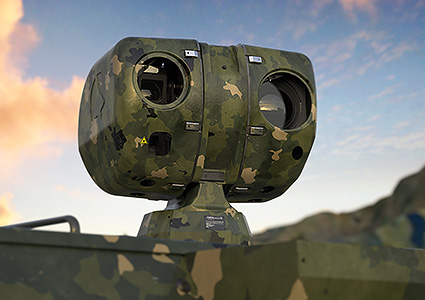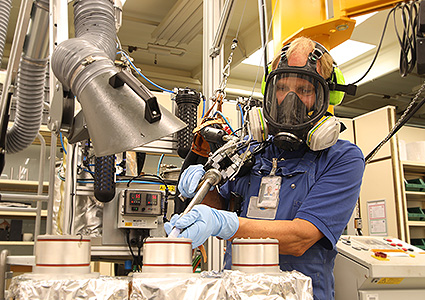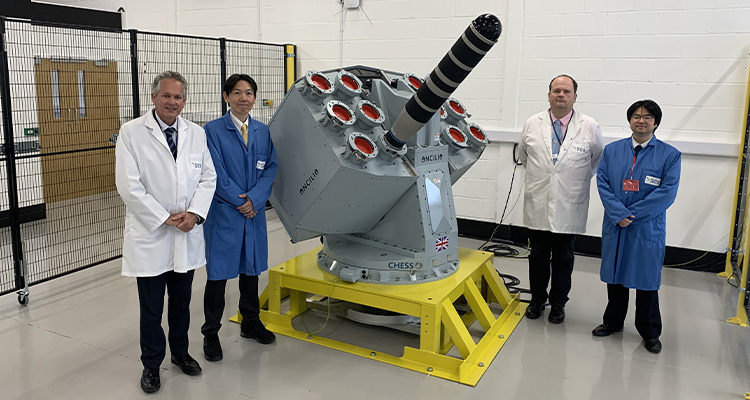How Cohort PLC stays agile to overcome increased global threats
Cohort was founded in 2006 with the aim of creating a publicly quoted defense technical services business that’s independent, flexible, and cost-effective. Aspiring to build a group of small to medium companies that can provide advanced technology and technological services to defense, security and related industries, Cohort now owns six businesses with these capabilities. CEO, Andrew Thomis explains how its strategy of organic growth and acquisitions has led to an evolution of focus from technical advisory services to an increasing number of products in the portfolio.
The strategy of pursuing small to medium sized businesses for acquisition works well in the defense space. As Andrew points out, research has shown small to medium enterprises (SMEs) are better able to innovate and operate with agility. These traits are fundamental to achieving success in the defense arena, where threats and subsequent solutions are constantly evolving.
medium enterprises (SMEs) are better able to innovate and operate with agility. These traits are fundamental to achieving success in the defense arena, where threats and subsequent solutions are constantly evolving.
In a time where global tensions are running high and conflicts around the world are impacting global trade, there is an increased demand for sophisticated defense technologies.
Driven by trends
Cohort is perfectly positioned to capitalize on this surge in demand, with companies in its portfolio that provide world leading sonar arrays that are equipped to support, not only manned ships and submarines, but also the increasingly important unmanned systems. The war in Ukraine has highlighted the importance of this specialty, as unmanned aerial and nautical vehicles are becoming increasingly common in combat zones.
Navies around the world are investing heavily in these technologies, which have a different set of constraints and freedoms from traditional systems. This means that there are certain challenges in the manufacturing process but also opportunities. The KraitSense towed sonar array offered by SEA (Systems Engineering and Assessment, a Cohort company) for example, instead of weighing tons could “be held under your arm” as Andrew puts it. This allows it to be used on unmanned vehicles as well smaller ships. “Smaller ships,” Andrew explains, “are crucial to operations in places like South-east Asia where you’ve got shallow waters and many islands.” The system also offers state-of-the-art submarine detection and anti-submarine capabilities.
Another innovation that was driven by emergent trends in naval warfare is Ancilia, a cutting-edge “decoy launch system for surface ships,” capable of combating multiple threats “simultaneously and from multiple directions.” It assesses the threat, and “fires off a sequence of decoys matched to what the threat actually is, maximizing the chance of defeating that threat. SEA has recently been awarded a contract by the Royal Navy for £135 million to supply Ancilia to improve the defense capabilities of surface ships.”
The UK market is not the only site of success though. With demand growing globally, the international market is proving to be a key element in the current growth phase of the group. Cohort’s company, Chess Dynamics, for example, has won a long-term contract with BAE to supply Sea Eagle surveillance systems to the Royal Australian Navy until 2031. Sonar and hydroacoustic sensors and equipment made by Cohort’s company, ELAC Sonar, have been provided to Navies in Asia and are being fitted to the new Italian submarines being built.
Sophisticated portfolio
 Through the acquisition of more product-based companies Andrew saw “a greater ability to meet the needs of international customers.” The group’s growing successes in international as well as domestic markets show the strength of this strategy. “It’s much more scalable,” Andrew says, “you can supply a single product multiple times, whereas a service is not repeatable in the same manner.”
Through the acquisition of more product-based companies Andrew saw “a greater ability to meet the needs of international customers.” The group’s growing successes in international as well as domestic markets show the strength of this strategy. “It’s much more scalable,” Andrew says, “you can supply a single product multiple times, whereas a service is not repeatable in the same manner.”
For this strategy to work takes the kind of expertise that Cohort has fostered and developed within its portfolio. Andrew believes ELAC’s sonar systems for non-nuclear submarines, for example, are some of the most capable in the world. To provide this level of expertise, it’s essential to be able to attract the right people. “What we offer,” he explains, “is employment in a role where you’re really close to the customer and you’re solving real problems, and we find that that’s a very attractive career option to many engineers.”
Through a clear strategy prioritizing innovation and agility, Cohort has built a portfolio of market leading SMEs operating in the defense and security sectors. By investing in technology as it evolves and recruiting world class engineers the group has developed a catalogue of products and services that are highly attractive to a growing number of nations that “recognize the need for greater commitment to defense.” Poised to provide the latest technologies, Cohort is set to continue its growth path and expand as it looks forward to more acquisitions. Andrew expects substantial growth in the next five years. “A good indicator of the growth prospects we’re seeing,” he elaborates, “is the group’s order backlog. At the end of the last financial year, it was over half a billion pounds.”
Defense, as Andrew puts it, “is fundamental to protecting society. When people look at the events in Ukraine they see that defense should be as much of a priority as health and education.” In this environment there are substantial opportunities for Cohort to continue to grow and develop along the impressive path that’s been laid out over the last 18 years.
